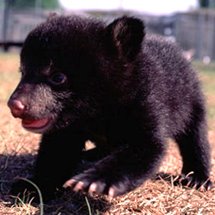 I looked up what I was trying to tell you on the phone. Here is the reason (below) that you were getting bitten and what to do about it and it totally makes sense. The most important thing I've learned in my life is that each and every animal is a LIVING BEING. They have eyes, legs, brains, ears, hands (of some sort), nose, teeth, feet, etc... A cat, a dog, a human and millions of other forms of life are are living beings like you and me. They're not just "animals" they're just different versions of you. Just think of a human and morph it into a dog in your head like a movie special effect. For example next time you look at a girl dog think of her as one of your human friends that got magically changed into a dog by a witch. Well, in my opinion, that dog is just a less brainy version of a person with hair and can bark instead of talk. It's a living being.
I looked up what I was trying to tell you on the phone. Here is the reason (below) that you were getting bitten and what to do about it and it totally makes sense. The most important thing I've learned in my life is that each and every animal is a LIVING BEING. They have eyes, legs, brains, ears, hands (of some sort), nose, teeth, feet, etc... A cat, a dog, a human and millions of other forms of life are are living beings like you and me. They're not just "animals" they're just different versions of you. Just think of a human and morph it into a dog in your head like a movie special effect. For example next time you look at a girl dog think of her as one of your human friends that got magically changed into a dog by a witch. Well, in my opinion, that dog is just a less brainy version of a person with hair and can bark instead of talk. It's a living being.So when you say you hate cats it concerns me that you hate living beings. It's disconcerting. It's weird. God made all the animals... but they aren't just "animals"... they're little furry, meowing, tiny brained, living people-like beings. They have behaviors that you may not understand but they're trying to communicate to us dumb humans what they want us to do... it's just that we don't see them as beings we see them as dumb little creatures... but they're not. They just live by different rules. Could you be expected to live like a cat? Why would you expect a cat to live like you? or a dog? I'm sure you're not even reading this... but do you get my point? Every living thing on this planet is just a different version of you. Meow!
"Don't Pet Me Anymore" Aggression
It is not uncommon for cats to "suddenly" bite while being petted. This behavior is not well understood, even by experienced animal behaviorists. For whatever reason, petting which the cat was previously enjoying becomes unpleasant. The bite is the cat's signal that she has had enough petting. Cats vary in how much they will tolerate being petted or held. People often describe cats as biting "out of the blue" or without warning; however, their signals may be very subtle and hard to detect. You should become more aware of your cat's body postures and cease petting or stop any other kind of interaction before the bite occurs. Signals to be aware of include:
* Restlessness
* Tail twitching
* Ears turning back or flicking back and forth
* Turning or moving her head toward your hand
When you observe any of these signals, it is time to stop petting the cat immediately and allow him just to sit quietly on your lap or go his own way, whichever he prefers. Any kind of physical punishment almost always makes the problem worse, as it makes the cat more likely to bite either because he is fearful and/or because petting becomes even more unpleasant if it is associated with punishment.
If you want to try to prolong the amount of time your cat will tolerate petting, use some food rewards. Before your cat shows any of the behaviors described above, offer her a special tidbit of food, such as a tiny piece of tuna or boiled chicken. At the same time, decrease the intensity of your petting. Continue to lightly pet your cat for a short time period while offering him tidbits. In this way, petting will come to be associated with more pleasant things, and may help her to enjoy petting for longer time periods. Each time you work with your cat, try to pet her for slightly longer time periods using the food. If you stop petting her when she is aggressive, her behavior has succeeded. She has learned that her aggressive behavior will get her what she wants—the petting stops. Thus, it is important to watch carefully for signals she is growing tired of petting.
It is not uncommon for cats to "suddenly" bite while being petted. This behavior is not well understood, even by experienced animal behaviorists. For whatever reason, petting which the cat was previously enjoying becomes unpleasant. The bite is the cat's signal that she has had enough petting. Cats vary in how much they will tolerate being petted or held. People often describe cats as biting "out of the blue" or without warning; however, their signals may be very subtle and hard to detect. You should become more aware of your cat's body postures and cease petting or stop any other kind of interaction before the bite occurs. Signals to be aware of include:
* Restlessness
* Tail twitching
* Ears turning back or flicking back and forth
* Turning or moving her head toward your hand
When you observe any of these signals, it is time to stop petting the cat immediately and allow him just to sit quietly on your lap or go his own way, whichever he prefers. Any kind of physical punishment almost always makes the problem worse, as it makes the cat more likely to bite either because he is fearful and/or because petting becomes even more unpleasant if it is associated with punishment.
If you want to try to prolong the amount of time your cat will tolerate petting, use some food rewards. Before your cat shows any of the behaviors described above, offer her a special tidbit of food, such as a tiny piece of tuna or boiled chicken. At the same time, decrease the intensity of your petting. Continue to lightly pet your cat for a short time period while offering him tidbits. In this way, petting will come to be associated with more pleasant things, and may help her to enjoy petting for longer time periods. Each time you work with your cat, try to pet her for slightly longer time periods using the food. If you stop petting her when she is aggressive, her behavior has succeeded. She has learned that her aggressive behavior will get her what she wants—the petting stops. Thus, it is important to watch carefully for signals she is growing tired of petting.















